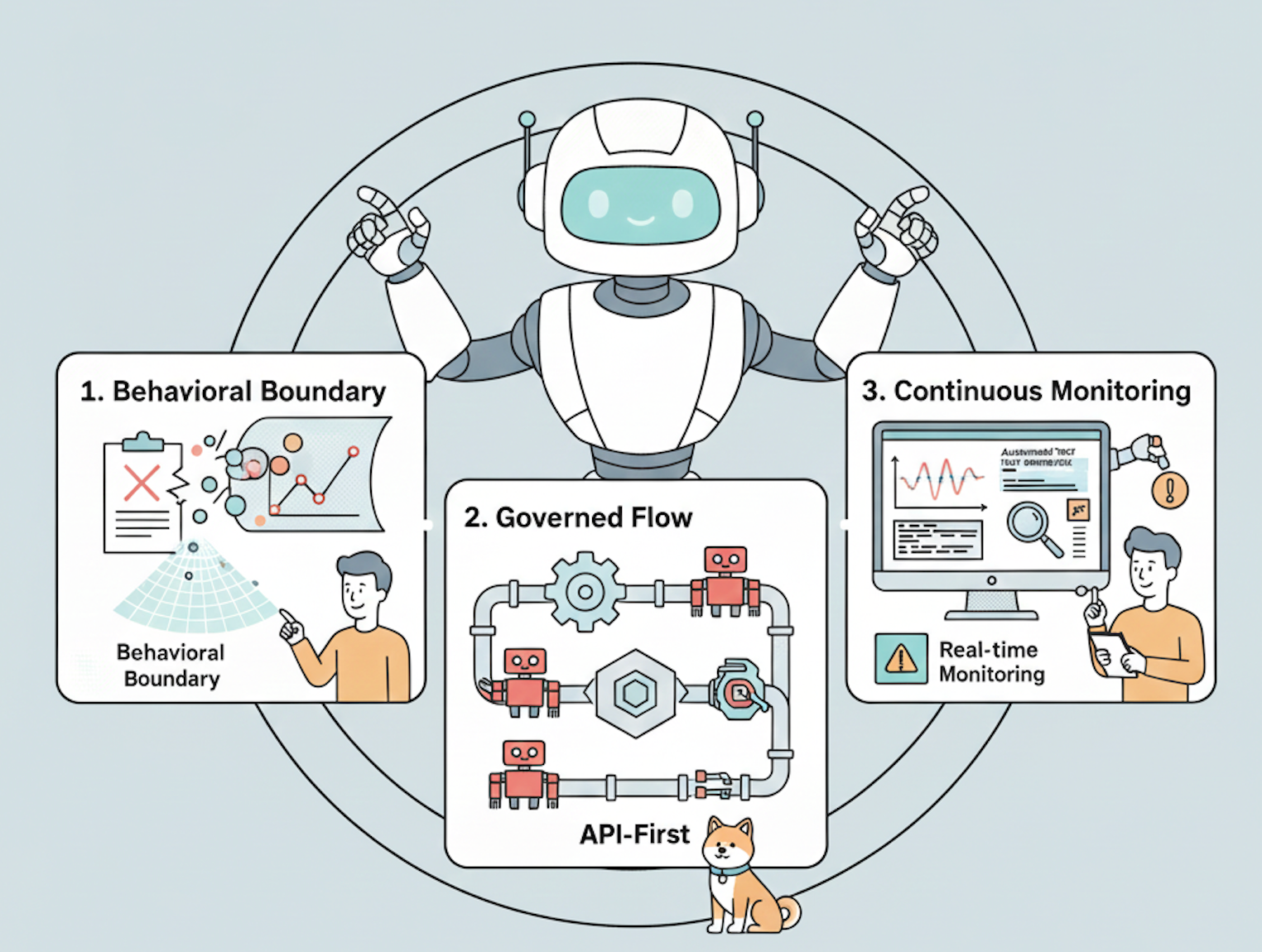Clear, accessible documentation is essential to product success. Whether you're building a developer-facing API, managing internal knowledge, or supporting a SaaS product, the right documentation tool can help you streamline operations and reduce support costs.
Document360 is one of the most popular knowledge base platforms on the market, especially among SaaS businesses and product teams. But is it the best fit for your team? And what are some other powerful alternatives that may better suit your specific needs?
This article explores what makes Document360 popular—and introduces five top alternatives to consider in 2025.
What is Document360?

Document360 is a cloud-based knowledge base platform designed for creating, managing, and publishing self-service documentation. It enables businesses to build public-facing help centers, internal knowledge bases, and product manuals with ease.
Key Features of Document360:
- Markdown & WYSIWYG Editor: Write in Markdown or use a visual editor for flexibility.

- Versioning and Rollback: Maintain multiple versions of documentation, with history tracking.
- Advanced Search: Built-in AI-powered search for fast content discovery.

- Private & Public Docs: Create role-based access for internal teams or publish content for customers.
- Analytics: Track how users interact with your docs, top searches, and content performance.

- Category Manager: Intuitive interface to manage folders, articles, and hierarchy.
- Integrations: Works with Intercom, Zendesk, Microsoft Teams, Slack, and more.

Best for: SaaS businesses, product teams, customer success
Pricing: Starts at $149/month (Standard Plan); Free trial available

Despite its strengths, some users may seek lower pricing, open-source flexibility, or more developer-focused features. Let’s explore the top alternatives.
Why Consider Document360 Alternatives?
While Document360 is a solid platform for creating structured knowledge bases, it may not suit every team or use case. Here are some common reasons users explore alternatives:
1. Pricing Concerns
Document360’s pricing can be restrictive for startups, open-source projects, or teams with limited budgets. Many alternatives offer more generous free plans or open-source flexibility.
2. Limited Customization
Some users find Document360’s customization options—especially for branding and UI—too limiting. Alternatives like Docusaurus or BookStack allow deeper control over the look and feel.
3. Specific Documentation Needs
Teams working with APIs or technical documentation may need features like Swagger/OpenAPI integration, version control, or interactive components—which are better served by tools like Apidog.
4. Self-Hosting Requirements
Organizations with strict compliance policies may need a self-hosted solution. Document360 is a cloud-first tool, so open-source, self-hosted alternatives like BookStack may be more appropriate.
5. Team Collaboration Features
Some alternatives offer better real-time collaboration, permissions management, or integrations with tools like Slack, GitHub, or project management platforms.
Top 5 Document360 Alternatives in 2025
1. Apidog – Best Document360 Alternative for API Documentation
If your team manages APIs, Apidog offers everything you need to write, test, and document them—within one unified platform. While Document360 is primarily focused on general product knowledge bases, Apidog shines for technical documentation.
Why Apidog Stands Out:
- Auto-generated API docs from OpenAPI schemas or visual design.

- Interactive documentation with “Try It” functionality for API consumers.

- Built-in testing, mocking, and code snippets for developers.

- Real-time updates between API design and docs.
- Team collaboration with role-based access and shared workspaces.
Apidog helps reduce the tool overload by combining API documentation, collaboration, and testing in a single product—something Document360 doesn’t offer.
Best for: Developer-focused teams, API platforms, SaaS companies
Pricing: Free tier available; paid plans start affordably
2. Notion – Best Document360 Alternative for Teams

While Notion isn’t a traditional documentation platform, it has grown into one of the most popular tools for internal knowledge management and team wikis. Notion excels at flexibility and collaborative content creation.
Key Advantages:
- Powerful block-based editor with databases, tables, and embeds.

- Real-time collaboration for distributed teams.

- Visual structure: pages, subpages, templates, and drag-and-drop editing.

- Easy to set up for non-technical teams.
- Integrates with Slack, Google Drive, and Zapier.
Notion is ideal for internal documentation, SOPs, and onboarding—not so much for structured, version-controlled public documentation.
Best for: Internal teams, operations, and HR
Open Source: No
Pricing: Free for individuals; team plans from $8/user/month

3. Docusaurus – Best Open Source Document360 Alternative for Developer Docs

Maintained by Meta (Facebook), Docusaurus is a static site generator specifically designed for building documentation websites. It’s free, open-source, and developer-friendly.
Core Features:
- Write in Markdown and customize with React components.
- Static site generation for fast loading and easy hosting.
- Supports content versioning and localization.
- Full control over theme and layout.
- Deploy easily with GitHub Pages, Netlify, or Vercel.

For engineering teams who need deep customization and control over their docs infrastructure, Docusaurus is a robust Document360 alternative—particularly for public developer documentation.
Best for: Technical teams, open-source projects
Open Source: Yes
Pricing: Free
4. HelpDocs – Best Simple Document360 Alternative

HelpDocs focuses on helping teams build clean, searchable, and beautifully branded help centers. Its strength lies in simplicity, speed, and usability, making it a strong competitor to Document360.
What Makes HelpDocs Unique:
- WYSIWYG editor with live previews.

- Custom domain support and theming.
- Powerful analytics dashboard and feedback collection.

- Instant full-text search with autosuggest.

- Easy to embed help widgets in your product or app.
HelpDocs is ideal for customer support and product teams looking to reduce support tickets through intuitive self-service portals.
Best for: SaaS businesses, support teams
Open Source: No
Pricing: Starts at $69/month

5. BookStack – Best Free Self-Hosted Documentation Wiki

If you’re looking for a self-hosted and open-source alternative to Document360, BookStack is a great option. Built on Laravel, BookStack is structured around a “Books > Chapters > Pages” hierarchy.
Features:
- Intuitive interface with WYSIWYG and Markdown support.
- Full control over hosting, customization, and security.
- User roles and permission control for team access.
- Easy to install on any Linux server or Docker container.
- Active development and growing community.

BookStack is a strong choice for teams with technical resources who want a cost-effective, privacy-first alternative to commercial documentation tools.
Best for: Internal teams, self-hosting, nonprofits
Open Source: Yes
Pricing: Free
Final Comparison Table
| Tool | Best For | Open Source | Self-Hosted | API Support | Pricing |
|---|---|---|---|---|---|
| Document360 | Public & private knowledge bases | No | No | Limited | From $149/month |
| Apidog | API documentation & collaboration | No | No | Full | Free & Paid Plans |
| Notion | Internal team wikis | No | No | No | From $8/user/mo |
| Docusaurus | Developer documentation sites | Yes | Yes | Moderate | Free |
| HelpDocs | Customer help centers | No | No | No | From $69/month |
| BookStack | Self-hosted internal wikis | Yes | Yes | No | Free |
Conclusion
Document360 remains a top-tier solution for businesses that need a structured, feature-rich knowledge base. But depending on your team’s goals—whether it's API lifecycle management, internal wikis, or developer-friendly static sites—there are several alternatives worth exploring.
Choose Apidog if you want a powerful all-in-one solution for building, testing, and documenting APIs.
Choose Notion for flexible, collaborative internal documentation.
Choose Docusaurus for open-source developer documentation with full control.
Choose HelpDocs for fast, user-friendly help centers.
Choose BookStack if you prefer a cost-free, self-hosted alternative.
Evaluate your use case, team structure, and budget to find the right fit. A good documentation tool doesn’t just organize content—it enables your users and empowers your team.



